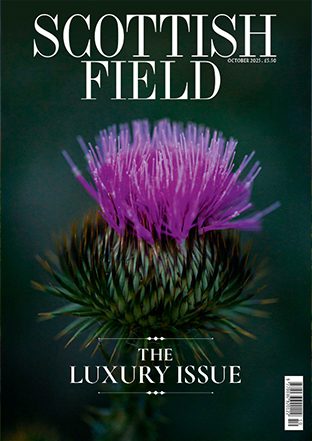Property experts are calling for the Deputy First Minister to apologise for mistakes made in the introduction of the new stamp duty tax in the same way he has said sorry for errors made in the ‘Named Persons Act’.
Bell Ingram, one of the country’s leading land and estate agents, believe that John Swinney’s admission to the the Scottish Parliament over shortcomings on plans to introduce a named person for every child in Scotland should open the door for a rethink over his controversial property tax.
The Land and Buildings Transaction Tax (LBTT) was introduced in April 2015, when Mr Swinney was Cabinet Secretary for Finance, Constitution and Economy, and replaced UK stamp duty as the tax applied to residential and commercial land and buildings transactions in Scotland.
Carl Warden, Senior Associate at Bell Ingram, believes Mr Swinney needs to accept he has made a mistake over the LBTT tax – which can see Scottish buyers paying almost double compared to their counterparts south of the border when buying property.
He said: ‘John Swinney is quoted as saying that he ‘made a misjudgement’ and ‘proved not to be helpful’. However, much to my surprise, he wasn’t talking about LBTT, but instead he was talking about the ‘Named Persons Act’ and went on to say he had been ‘quite candid’ about misjudgements he’s made.
He added: ‘I hope we can now expect to see the same apology for LBTT, as it was Mr Swinney who introduced the tax while in office before Derek Mackay was left to pick up the pieces. The LBTT needs to change because it is stunting the property markets in parts of Scotland, especially rural Scotland.’
The tax means that those buying in Scotland can pay substantially more on property purchases compared to others in the rest of the UK. For example, someone buying a £500,000 home in Scotland will pay £23,350 in tax but in England, the tax paid is considerably less, at £15,000. As you go up the price brackets, the difference becomes even more substantial. A £1.2m house in Scotland would be taxed at £102,350, compared to £63,750 in England.
Carl continued: ‘Not only was this tax a poor judgement from its conception, it was not accurately researched to determine the financial income the Scottish Government would generate. Its performance has been poor not only because of the low income generation, but also because it has stunted the performance of the property market for those higher value transactions.’
LBTT means that properties priced between £325,000 and £750,000 have a 10 per cent taxation and for £750,000 upwards, it’s 12 per cent. The rest of the UK pay five per cent for the equivalent banding of £250,000 to £950,000 and 10 per cent on properties from £925,000 to £1.5m.
Established 117 years ago, Bell Ingram has 130 professional staff across 11 UK offices including: farm, estate and forestry managers; chartered surveyors, estate agents, architects, planners, and building surveyors; and tourism, GIS mapping, and renewable energy specialists.
TAGS

